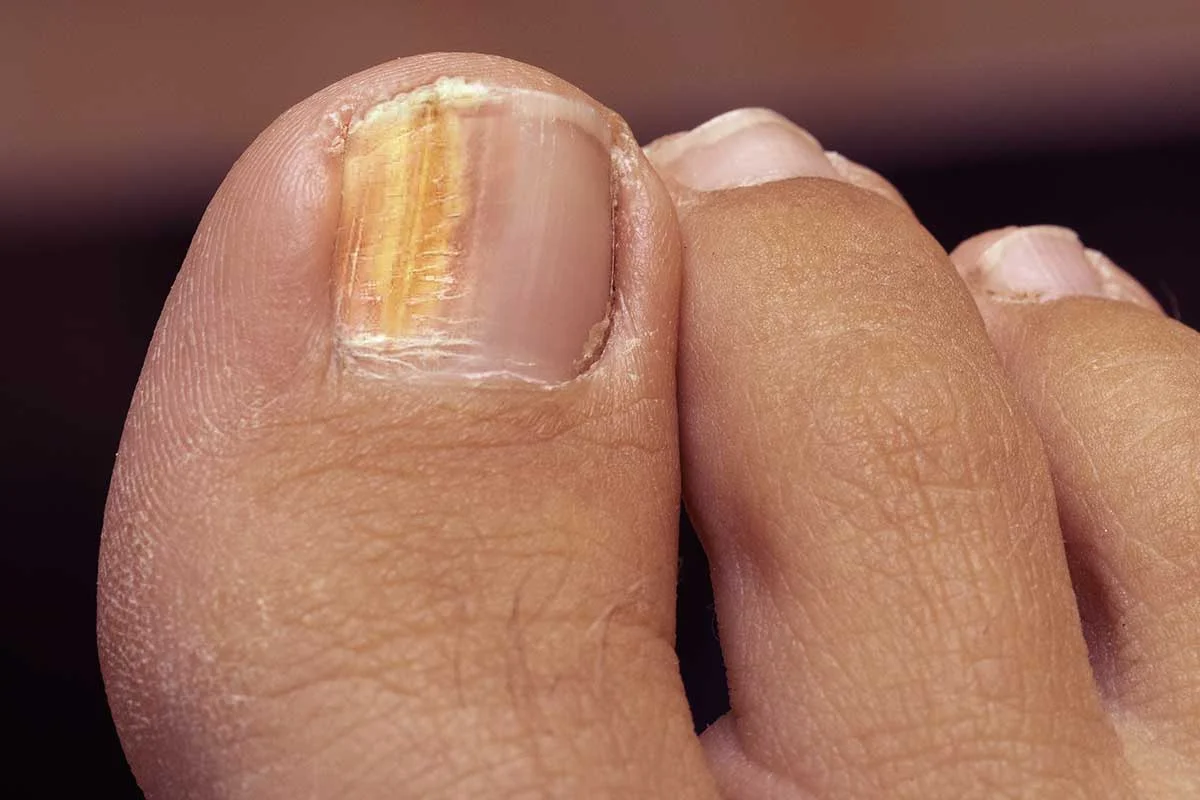Fungal nail infections, also known as onychomycosis, can be a common yet distressing condition. They often affect toenails but can also occur in fingernails. As a Chicago resident, it’s important to know the signs of fungal nails and how to address them before they become a more serious issue. Our experienced team at Michigan Avenue Podiatry, including board-certified podiatrists like Dr. Kelsey Krotiak, Dr. Asim Qureshi, Dr. Zane Qureshi, Dr. Kevin O’Connor, and Dr. Mohammad Usman, can help diagnose and treat this condition effectively.
What Causes Fungal Nail Infections?
Fungal nail infections occur when fungi enter the nail bed, often through small cuts or injuries. Factors that can contribute to the development of fungal nails include:
- Warm, humid environments: Fungi thrive in moist conditions, making places like public showers and swimming pools potential breeding grounds.
- Poor foot hygiene: Not keeping your feet clean and dry can increase your risk of infections.
- Weakened immune system: Individuals with diabetes, psoriasis, or weakened immune systems are more susceptible to fungal infections.
- Tight-fitting shoes: Wearing shoes that do not allow your feet to breathe can create an ideal environment for fungi to grow.
Signs You May Have Fungal Nails
- Discoloration of the Nail
One of the first signs of a fungal nail infection is a change in the color of the nail. You may notice yellow, brown, or even white patches on the surface of the nail. This discoloration can spread as the infection progresses.
- Thickening of the Nail
As the infection develops, the affected nail may begin to thicken. This change can make it difficult to trim your nails and may lead to discomfort while wearing shoes.
- Brittleness or Crumbling
Fungal nails often become brittle and may start to crumble or break easily. This can make your nails look unsightly and can cause further pain or injury.
- Separation from the Nail Bed
In more advanced cases, the infected nail may separate from the nail bed. This separation can lead to pain and exposes the nail bed to additional infections.
- Unpleasant Odor
Fungal infections can produce a foul odor emanating from the affected nail. If you notice an unusual smell, it’s a good idea to consult a podiatrist.
- Inflammation or Swelling
You might experience redness, swelling, or inflammation around the infected nail. This can be a sign that the infection is spreading and may require immediate attention.
- Pain or Discomfort
In some cases, fungal nails can cause pain or discomfort, especially when wearing shoes or walking. If you experience persistent discomfort, it’s essential to seek professional help.
When to See a Chicago Podiatrist
If you recognize any of these signs, it’s crucial to consult a Chicago foot doctor as soon as possible. Early diagnosis and treatment can prevent the infection from worsening and affecting surrounding nails or skin.
Treatment Options for Fungal Nails
At Michigan Avenue Podiatry, our team offers a range of treatment options tailored to your specific needs:
- Topical antifungal medications: These creams or solutions can be applied directly to the nail.
- Oral antifungal medications: In more severe cases, a podiatrist may prescribe oral medications to help eliminate the fungus from within.
- Laser therapy: This is a newer treatment option that uses laser light to target and destroy the fungus without harming surrounding tissue.
- Nail removal: In severe cases, removing the infected nail may be necessary to allow a new, healthy nail to grow back.
Prevention Tips
To reduce your risk of developing fungal nails, consider the following tips:
- Keep your feet clean and dry: Wash your feet daily and dry them thoroughly, especially between the toes.
- Wear breathable footwear: Choose shoes that allow air circulation to prevent moisture buildup.
- Avoid walking barefoot in public areas: Protect your feet in places like locker rooms and pools to minimize exposure to fungi.
- Trim nails regularly: Keep your nails short and well-groomed to prevent fungi from finding a place to thrive.
Conclusion: Take Action Today
Fungal nail infections are common, but they don’t have to be a source of embarrassment or discomfort. Recognizing the signs early can lead to effective treatment and a quicker recovery. If you suspect you have a fungal nail infection, don’t hesitate to reach out to our team at Michigan Avenue Podiatry.
Our board-certified podiatrists, including Dr. Kelsey Krotiak, Dr. Asim Qureshi, Dr. Zane Qureshi, Dr. Kevin O’Connor, and Dr. Mohammad Usman, are here to provide you with compassionate care and expert treatment options. Schedule an appointment today to ensure your feet stay healthy and happy!




